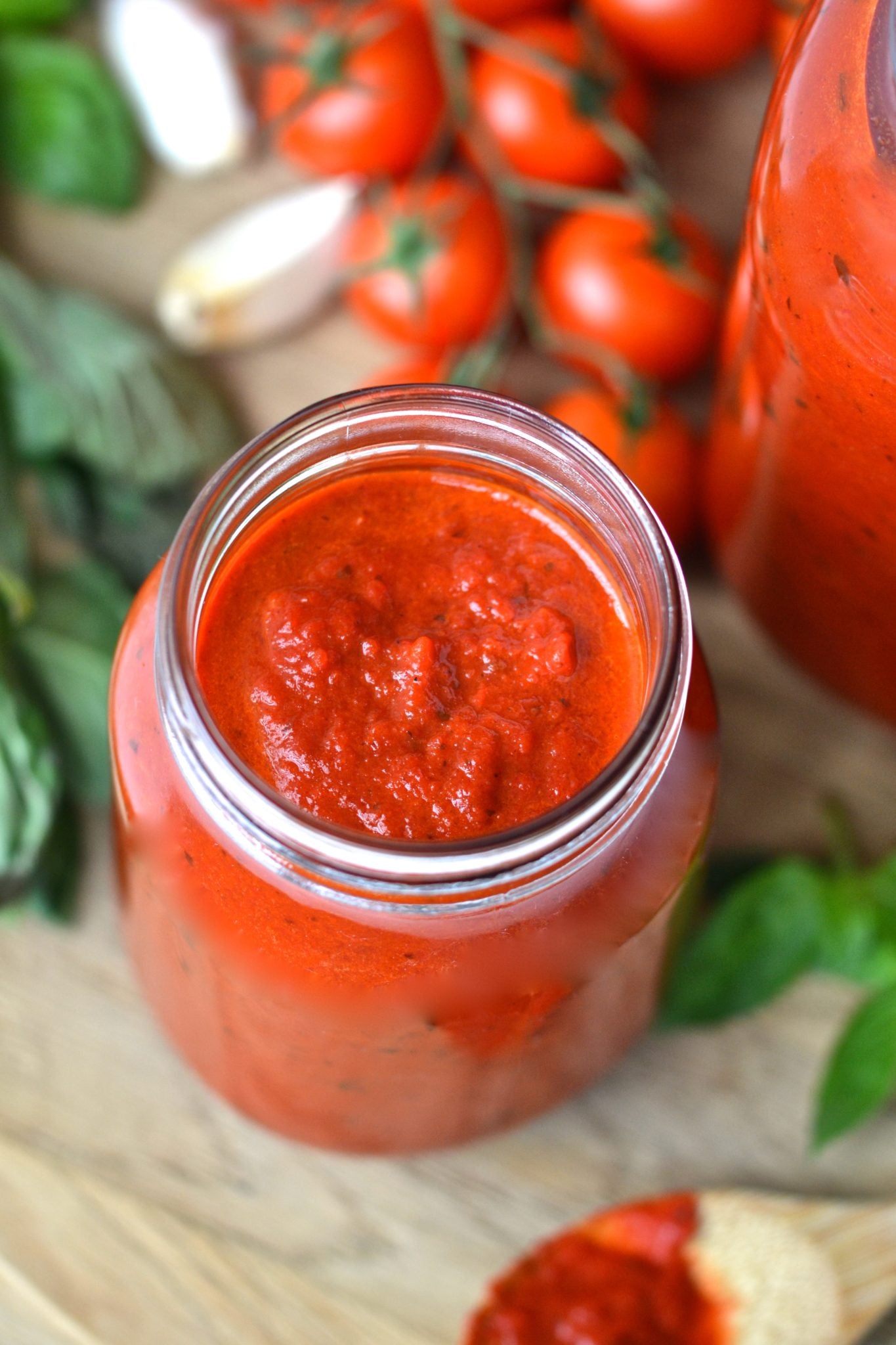
Consiglio's Tomato Sauce Recipe for Canning
Since this recipe is used specifically in the preparation of tomato sauce for canning, it is important to include a preserving agent. Tomatoes have a borderline low acidity, and in order to be preserved safely either lemon juice or citric acid must be added. Including the correct ratio of one of either lemon juice or citric acid will raise the acidity of your tomato sauce, decreasing the risk of botulism and spoilage when paired with proper canning and heat processing procedures.
For every liter of tomato sauce, it’s recommended you add 2 tablespoons (29.6 mL) of lemon juice or ½ teaspoon (4.9 mL) of citric acid. Since this recipe will yield 12 liters of tomato sauce, you’ll need to use either 24 tablespoons of lemon juice (354.88 mL, or 1.5 cups), OR 6 teaspoons of citric acid (29.57mL or ⅛th of a cup).
Consiglio’s Family Tomato Sauce Canning Recipe
Recipe Yield: 12 x 1 L Jars
Yield will vary depending on size and liquid content of tomatoes used. On average, a single 1L (1 qt) jar will require 5lbs (2.27 kgs) of tomatoes
|
Ingredients:
*Italian Spice Blend: 4 teaspoons each dried parsley, oregano and basil |
|
Method:
|
|
1. Rinse and sort tomatoes, discarding any bruised, discoloured, or spoiled sections. 2. Bring a large pot of water to a boil, and blanch tomatoes until skins loosed and crack (approx. 1-2 minutes) |
|
3. Working in batches, use a slotted ladle or wire scoop to remove blanched tomatoes from the water, and pass through either an electric or manual tomato milling machine (sometimes also known as a tomato squeezer). Milling the tomatoes will separate the skins and seeds from the tomato juice and puree – retain the juice and puree for this recipe. Seeds and skins can be discarded*. Repeat this process until all tomatoes have been milled. 4. After all of the blanched tomatoes have been milled, bring tomato juice to a boil in a large saucepan over high heat. Reduce heat, and simmer until liquid has been reduced by 1/3rd – this will yield a thin to medium bodied sauce. 5. Once reduced, your tomato sauce is ready to for canning. To ensure safe canning procedure is followed, refer to our Heat Processing and Canning Guidelines above. |
|
Before adding your tomato sauce to your jars, be sure to add your preserving agent of choice (2 tablespoons of lemon juice OR ¼ teaspoon per 1L jar citric acid) as well as 1 teaspoon of salt and 1 teaspoon of your Italian seasoning blend. Closely follow our Canning Guidelines through the rest of the heat processing procedure to finalize preserving your sauce.
* Tomato skins and seeds separated in the milling process can be discarded, however if using pesticide-free or organic tomatoes, the skins and seeds can be dehydrated and ground into a pungent tomato powder that can be used to add flavour and body to soups and sauces.
Tools/ Equipment/ Ingredients available at Consiglio's:
(click on item name to be taken to product page)


Comments
Leave a comment